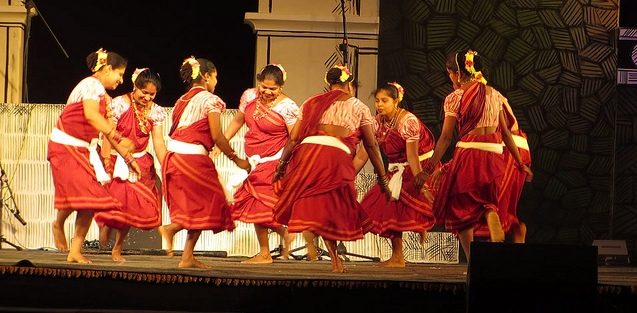Did you know that apart from the Gowdas, the Kunbi tribe were the earliest settlers of Goa?
Tribe History
Kunbis, are arguably the earliest settlers of Goa. They are a sturdy tribal community mostly settled in Salcete Taluka, who were Hindus, were converted to Christianity during the Portuguese era, have still retained the most ancient folk tradition of the land. Belonging to the agricultural class, they are perceived as mild mannered and industrious people. They live together, clustered into several hamlets, known as ‘kutumba’, however today they are categorized as Other Backward Class (OBC) . Kunbis have a rich tradition of art and culture to which they attach particular importance. The Kunbi folk dance is distinctive to the tribe and is quite famous in Goa as it is known to portray social themes.
Kunbi Dance
Despite witnessing drastic changes in Goa from the pre-Portuguese rule, till date, the Kunbis have managed to preserve the ancient folk traditions of the land. This includes the Kunbi dance which is performed by the women folk. It is fast yet graceful and the dancers posture is pivotal to perform the steps elegantly.
The performers wear colourful attire that are simple in design and conform to the tribe’s tradition. After tying their hair into a neat bun, they adorn it with colourful flower garlands. Simple but elegant is their jewellery such as necklaces, earrings and bangles. The traditional costumes lend a colourful touch to this ethnic art form. The Kunbi dance is performed solely on social occasions.
Myths about the Tribe
There is a very common misconception that Kunbi is a part of Hindu religion, and after the influence of the Portuguese, they were converted to Christianity. However, the members of this community practice religions such as Hinduism, Jainism, Islam, Buddhism Sikhism, Christianity and the list goes on. Kunbis are Marathas, but Marathas are not Kunbis, i.e. Kunbis are a particular class of Marathas separated by their tribal customs and traditions.


